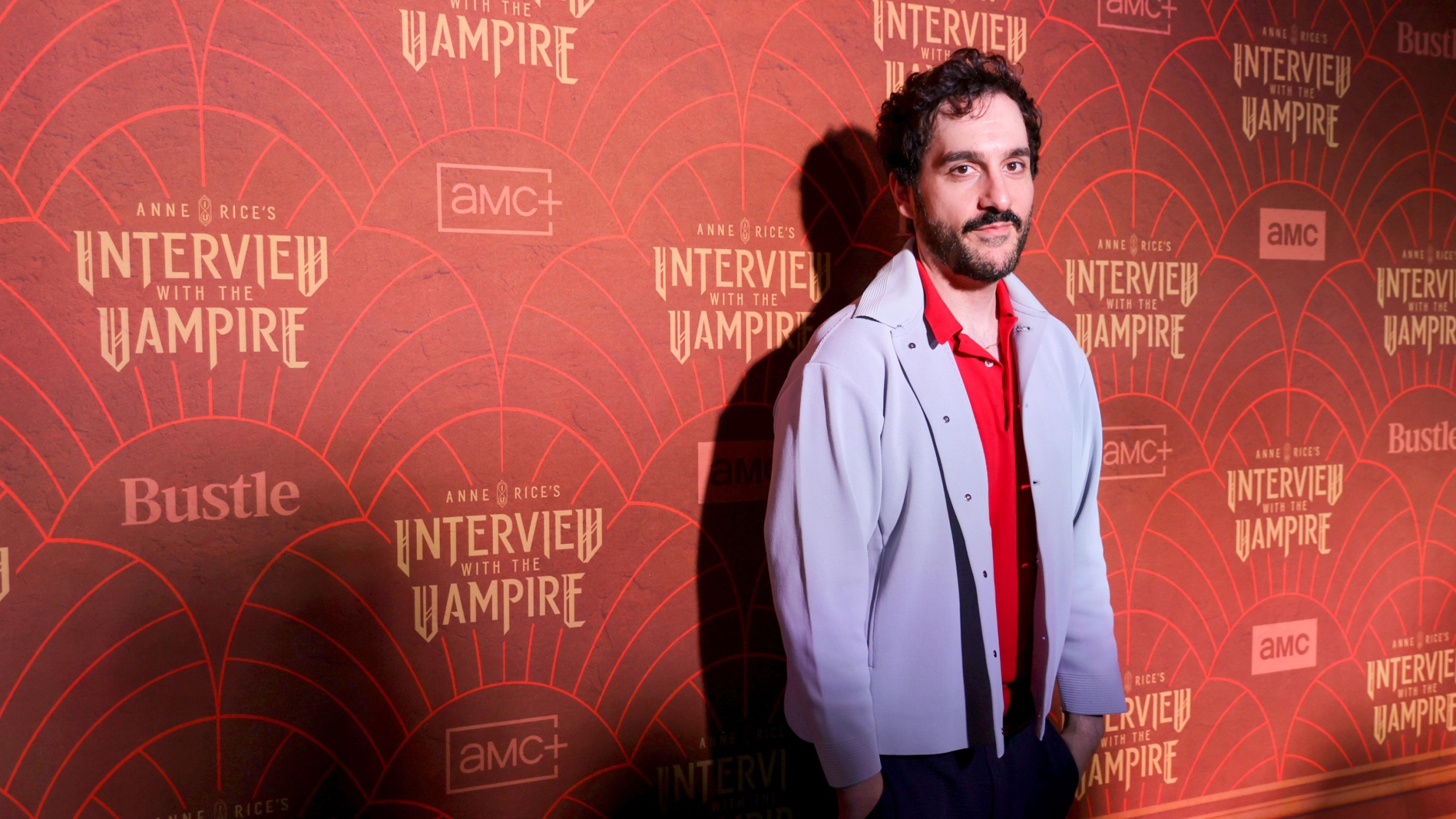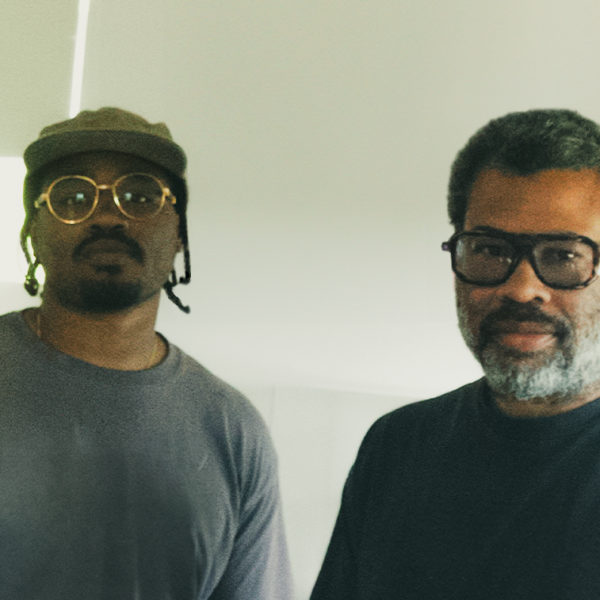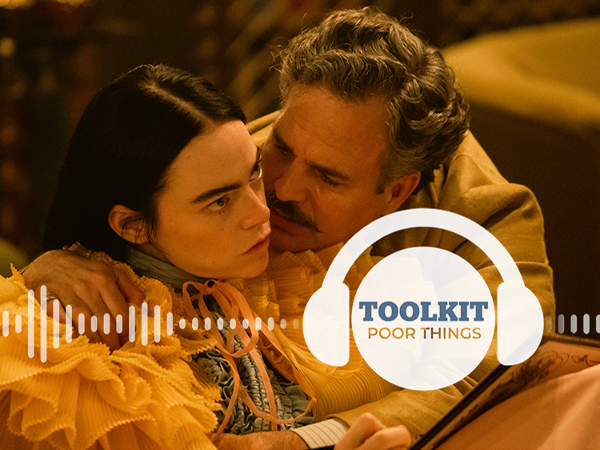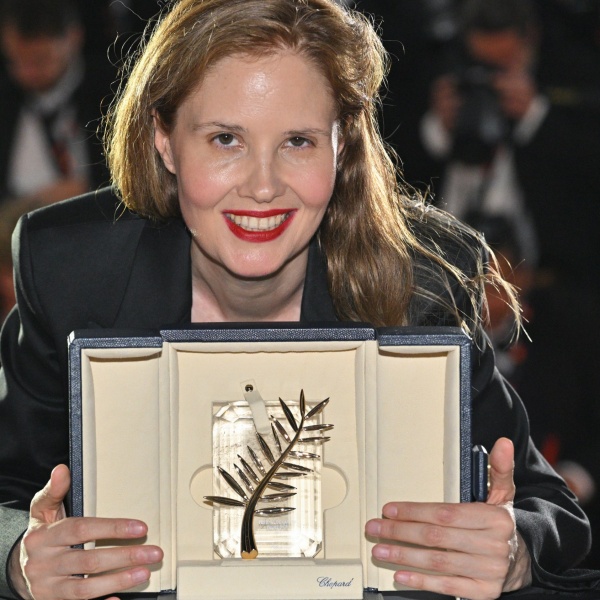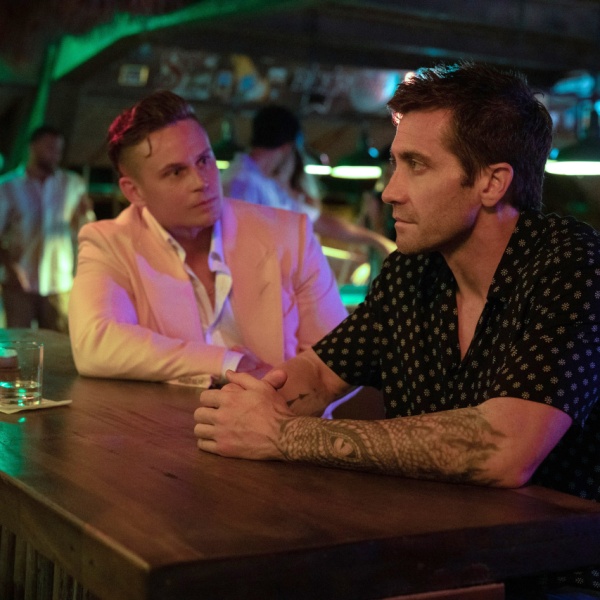Levan Akin‘s “And Then We Danced” moved us a few years back with the story of a gay dancer who finds love in Georgia. It’s movement of a different kind that characterizes his gorgeous new character study, “Crossing,” now streaming on MUBI after opening theatrically in July.
In the wake of her sister’s death, a retired Georgian teacher named Lia (Mzia Arabuli) ventures out in search of her estranged trans niece, previously disowned by the family and now in Istanbul. With help from a lively young neighbor named Achi (Lucas Kankava), Lia crosses the border into Turkey so she can make amends and fix what’s been broken.
“Crossing” was originally titled “Passage” before the name was changed when Ira Sachs released a queer drama of his own named “Passages” last year. That was definitely for the best because the title “Crossing” better encapsulates the true nature of Levan Akin’s Teddy Award-winning drama. With the search for Tekla underway, every character is in constant motion, including Evrim (Deniz Dumanli), a trans NGO lawyer whose vital work eventually intersects with Lia and Achi’s story halfway through.
It’s not just journeys and borders that cross here, though. Gender, sexuality, and even the formalistic structure of the film itself are fluid throughout as “Crossing’s” Italian Neorealist tendencies give way to something more fantastical, even ethereal, by the end. It should come as no surprise that even the very existence of “Crossing” as it is today also changed and shifted often throughout development, right up until the very last moment.

The casting process was “really long and arduous,” Akin told IndieWire, and that was especially true when it came to casting the central trio. “That constellation you see in the film didn’t come up till the last, last, last minute. Deniz [Dumanli], who plays Evrim, was cast the day before.”
Dumanli grounds “Crossing” with a calm yet steely conviction in her screen debut. As IndieWire’s review wrote earlier this year, “Just being in her presence, you feel like everything will somehow work out.” And that’s still the case even when it’s unclear exactly how Evrim’s story is actually connected to Arabuli’s character. Is she Lia’s niece, all grown up? Did Tekla change her name to Evrim so no one could find her? We know the truth now, of course. But “it keeps you thinking,” as Akin pointed out, “because you want the audience to be active when they watch a film.” By playing with this notion, Levan encourages us to link the film’s two main narrative threads for ourselves long before Lia and Evrim actually meet, a deliberate choice he made to avoid a disconnect between their seemingly separate stories early on.
“Crossing” almost turned out differently in other pivotal ways, too. “Actually, there were more characters in an earlier version,” said Akin, who also directs episodes of TV’s “Interview with the Vampire.” “When we were gonna film one year earlier, Achi’s character was much smaller. He only drives her to the bus stop in the original. Then the street kids… The boy has a mother that Evrim mentioned, she was a character in the film. You follow her and she has a crazy night, which was fun.”
Akin likened these glimpses — the ones that were included and also the ones we don’t see — to opening the little boxes on an advent calendar, as if we’re stepping into a different world with each new character before we close that window and move onto the next. “I think that gives it this lived-in texture that a lot of people like. I hate movies when even in a small mini role, you’re like, ‘OK, that’s just somebody who walked in that day and shot their scene.’ You don’t want it to feel like that.”
That lived-in texture is an organic result of Akin’s research process. For “Crossing,” Levan chose to veer “more into a hybrid cinéma vérité type of narrative” where “a lot of the things that I show are things that exist and are real and things that I’ve experienced. I had so many interesting insights into the life of a trans woman who is a lawyer and all of these things in Istanbul because I met people like that when I was doing research. So most of the scenes with Evrim are scenes that I experienced with the people that I researched, which I really wanted to include in the film. Then I had to weave it all into a coherent story so that I could get money, because people who read the script just want it to be a fun read. That was challenging because I really wanted to meander off with the camera, spend some time with random characters, being a symbol.”
But even if Akin hadn’t decided to incorporate the experiences of trans people he met during the research process, “Crossing” would still be intrinsically queer nonetheless. In fact, that’s one key element of this story that was never going to change, no matter how else the film might have evolved. A title card at the very start explains how both Georgian and Turkish are gender-neutral languages, emphasizing how a queer outlook was naturally integrated from the outset. “‘Crossing’ is very much about navigating patriarchy,” said Akin. “This theme of living your life for yourself and not caring what other people think. As a queer person, that’s something that I struggled with a lot growing up, and I think all of us can identify with. When do you take this step, and how do you take this step of living your honest, true life? A lot of people never do that. And that’s so wasteful.”
Everyone in the film, queer or not, is constantly forced to reckon with the overbearing demands of the patriarchy they find themselves in. “For Lia, you can feel very clearly that she’s a woman who didn’t want to subjugate herself to a man at some point. She doesn’t have children. But procreation is basically the reason for living in Georgian culture. Otherwise, it’s such a huge ‘tragedy’. You ‘wasted’ your life essentially. So, for her, she’s navigating that space.” The same is true of Achi, who is forced to contend with his toxic brother at home at the film’s start. Evrim also reckons with the patriarchy in a more overt way, but she does so with such inspiring resilience, especially in scenes like her encounter at the police station or when a doctor dismisses her joy at being recognized for who she is.
“All of these characters are basically victims of the same thing,” said Akin. “I think it’s interesting that in our queer struggle, we help people around us also see the patterns of patriarchy and how they themselves are trapped in the system. A lot of gay boys grew up in a family where it’s very conventional. And then through the boys’ struggle and awakening, maybe the mother and the sister in the family see their own role. It’s like our struggle reflects upon people around us who are maybe not queer. These people in the film are basically pointing a finger at — or trying to, at least, in Lia’s case, maybe more subconsciously. But it’s interesting for her that she follows in Tekla’s footsteps and regains her autonomy somehow.”
These footsteps eventually lead to a “bittersweet” reconciliation between Lia and Tekla that’s not what it seems. Because for a moment, it really feels like Lia has reached the happy ending she’s longed for, the kind of picturesque, fairytale reunion you might see depicted on a festive advent calendar. But after the pair catch up and reconnect, it suddenly becomes clear that Tekla doesn’t exist at all in this moment except for in Lia’s imagination. The truth is that she’s still out there somewhere amidst the chaos, a distant world swirling among countless others throughout Istanbul. And that’s assuming Tekla is still alive. This twist is a bold move that pulls the rug out from under us, especially as everything leading up to this point has been rooted in something far more grounded akin to the neorealists of the past.
“I felt that some people were not going to not like this,” he said. “That it’s risky.” Some people involved even suggested the film could end earlier and skip this scene entirely. But watching “Crossing” back a second time, it’s impossible to imagine the film ending any other way.
“I knew right from the beginning that I wanted that scene because I knew that I couldn’t have Lia find Tekla,” Akin said. “It would be ridiculous. But I thought, we can still hear [their conversation]. Because Achi asked Lia throughout the film, ‘What are you going to tell her?’ But to me, that ending is the whole point of the movie. So many of us have never had that conversation or been able to have that conversation with your elder or your grandma, or whatever. To hear those words from a character like Lia who is such a matriarch, such a strong character? For Tekla to actually hear those words, I was like, we needed to hear those words too.”
How often do queer people receive such warmth and validation after being forced to leave home, and from an elder, no less? By ending the film in this way, Akin essentially has his Baklava and eats it, too, by providing us with some much-needed catharsis, but not at the expense of “Crossing’s” wider integrity. A similar stylistic flourish took place in Akin’s previous film, “And Then We Danced,” when Merab (Levan Gelbakhiani) dreamt up a makeout sesh that didn’t really happen. But the two films are connected in far more ways than that.

“They are sort of companion pieces,” Akin said. “I feel like the one couldn’t have really existed without the other.” There’s the fact they’re both intrinsically queer, of course, something Akin brings to each project from his own personal experience. But beyond that, there’s a wider mission statement that crosses the gap between each of his films.
“I’ve always been obsessed with time,” said Akin, born in Sweden but with parents who moved from Georgia when it was still under Soviet control. “That idea of capturing spaces and places and people that are going to disappear… Otherwise, nobody will know that they existed. That’s why I love cinema. When I was a kid, my dad had these old Georgian movies on VHS where they captured a space that doesn’t exist anymore. I love capturing it in a fictional context.”
As an example, Akin brings up Anna Magnani’s work in Italian classics such as “Mamma Roma,” citing how director Pier Paolo Pasolini “captured the vibrancy of this woman in her prime.” It’s a rather fitting comparison given that Mzia Arabuli’s performance as Lia already reminded us of Magnani herself in our own review of “Crossing.” “And Then We Danced” similarly captured a specific sense of time and place by defiantly interweaving queer desire and traditional dance within the context of Georgia’s oppressive patriarchy. “Crossing” does that, too, by celebrating the resilience of the trans community in modern-day Istanbul, where real women like Evrim fight for change and help those in need. “I want the world to see these people,” said Akin. “I want to share them. So that’s something that sometimes keeps me awake at night where I’m like, ‘Where can I go?’ I need to find more. I want to find spaces that I want to open to the viewers.”
Luckily, Akin already has some ideas on where to go next: “I love that ‘Crossing’ takes us from Georgia to another place, which is also a road that I’m following as a filmmaker. I have one more film that I’m gonna do that has some influences from there, but it’s different.” This “road,” this journey — both physical and cinematic — binds Akin’s filmography together through transient moments in time and space that nonetheless cross all kinds of boundaries. Specific yet fluid, queer but universal, Akin’s work defies categorization, and it does so, time and time again, in the most moving, emotionally resonant way possible.
“Crossing” is now streaming on MUBI.
